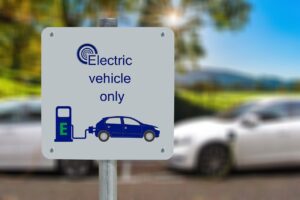 Electric cars have taken the automotive industry by storm in recent years, offering a cleaner and more sustainable alternative to traditional gasoline-powered vehicles. As concerns about climate change and air pollution intensify, the role of electric cars in protecting our environment has become increasingly crucial. In this blog post, we will delve into the reasons why electric cars matter for the environment and why they are a pivotal part of the solution to our environmental challenges.
Electric cars have taken the automotive industry by storm in recent years, offering a cleaner and more sustainable alternative to traditional gasoline-powered vehicles. As concerns about climate change and air pollution intensify, the role of electric cars in protecting our environment has become increasingly crucial. In this blog post, we will delve into the reasons why electric cars matter for the environment and why they are a pivotal part of the solution to our environmental challenges.
Reducing Greenhouse Gas Emissions by Electric Cars
One of the most significant environmental benefits of electric cars is their capacity to reduce greenhouse gas emissions. Unlike internal combustion engine (ICE) vehicles, which burn fossil fuels and release carbon dioxide (CO2) and other harmful pollutants into the atmosphere, electric cars run on electricity, producing zero tailpipe emissions.Electricity generation is getting cleaner over time, with a growing share of renewable energy sources such as wind, solar, and hydroelectric power. This reduction in CO2 emissions plays a vital role in mitigating climate change, making electric cars a key component of efforts to combat global warming.
Improving Air Quality
Electric cars not only help combat climate change but also contribute to improved air quality in our cities. Traditional vehicles emit pollutants such as nitrogen oxides (NOx), particulate matter (PM), and volatile organic compounds (VOCs), which can have detrimental effects on human health and the environment.By transitioning to electric cars, we can significantly reduce these harmful emissions, resulting in cleaner and healthier air for everyone. This is especially important in urban areas where traffic congestion and pollution often go hand in hand.
Energy Efficiency
Electric cars are inherently more energy-efficient than their gasoline counterparts. They convert a more significant portion of the energy from their power source into actual motion, whereas internal combustion engines waste a substantial amount of energy as heat. This improved energy efficiency translates into less overall energy consumption.
Reduced Noise Pollution
In addition to reducing harmful emissions, electric cars contribute to a quieter and more peaceful urban environment. Traditional vehicles with internal combustion engines generate noise pollution from their exhaust systems and mechanical components. Electric cars, on the other hand, operate quietly, reducing noise pollution in densely populated areas.
Encouraging Renewable Energy Adoption
The growth of electric cars is also driving the adoption of renewable energy sources. Many electric car owners choose to power their vehicles with clean energy generated from solar panels or wind turbines. This not only reduces their carbon footprint but also supports the transition to a renewable energy future.
Conclusion
Electric cars represent a significant step forward in our quest to protect the environment and combat climate change. Their ability to reduce greenhouse gas emissions, improve air quality, and promote energy efficiency makes them a pivotal part of the solution to our environmental challenges.As we continue to develop and adopt electric car technology, it’s essential that governments, businesses, and individuals work together to expand charging infrastructure, incentivize electric car adoption, and invest in cleaner energy sources. By doing so, we can maximize the environmental benefits of electric cars and pave the way to a more sustainable and eco-friendly future for generations to come.
Image Sources: All images used in this blog post are from Pixabay, a reputable copyright-free image source. You can explore Pixabay to find a wide range of high-quality images for your content without worrying about copyright issues.
